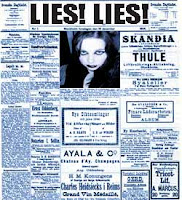CINCINNATI (TDB) -- At a time when crime is high and
up to 112 cops face layoffs due to pinched government budgets, it seems absurd that large sums earmarked for law enforcement haven't reached Cincinnati police and suburban departments. The Daily Bellwether has located records indicating nearly $2 million in forfeited bail bonds is due and owing. There could be more; the $2 million is what this blog tracked down in 50 forfeiture cases dating back to the 1990s. One bail bond company appears to have 26 unpaid forfeiture judgments -- the math indicates the judgments total about $1.05 million. The business still seems to be writing bonds. Last week, the courthouse was buzzing with
rumors of a federal investigation about a financial scandal centered on uncollected bail bonds. But the issue goes deeper -- it impacts public safety and keeping cops on the streets.
Officials at the Republican controlled courthouse appear to know they have a problem. Hamilton County Clerk of Courts Patricia Clancy said in budget documents filed with the county commissioners last month that she was going after the forfeitures:
"The Clerk is also working with the prosecutor to recover forfeited bonds monies that remain uncollected."
The topic of uncollected bonds received one sentence in a five-page, single-spaced document that admits in its own words local government faces a serious
"budget crisis." Talk about burying an issue.
Why wasn't the recovery effort pursued earlier? The Bellwether has found records indicating that one of the uncollected bonds dates back to 1991, another to 1997. Many of the uncollected forfeitures date back to years when
Republican County Commissioner Greg Hartmann was serving in the court clerk's office. There are numerous examples of money owed to the Cincinnati police, who are supposed to use forfeited bail bonds to target drug crimes. But they haven't gotten all the cash that is supposed to come their way from the court clerk's office. Here's one example from Case No. B 08-05552-B, which involves an accused drug trafficker from Detroit who posted a $200,000 bail. When the person didn't show up in court, Hamilton County Common Pleas Judge Melba Marsh ordered the $200,000 forfeited. She signed the judgement entry on April 2, 2009 and said about $160,000 should go to the Cincinnati cops. Here's are a few pertinent paragraphs from the court order:
"WHEREFORE, it is further ordered pursuant to R.C. 2925.11(E) that the forfeited bond funds on deposit with the Clerk of Courts be paid as follows:
"First, to the Clerk of Courts to satisfy the costs on the bond forfeiture proceeding; then the remaining balance is to be divided eighty (80%) to the Cincinnati Police Department and twenty percent (20%) to the Prosecuting Attorney of Hamilton County, pursuant to R.C. 2925.50. In any additional funds come into the possession of the Clerk of Courts relative to the judgment on Bond Forfeiture, those additional funds are to be divided on the same pro rata basis as set forth above. The aforementioned funds shall be used to law enforcement efforts pertaining to drug offenses."
While that seems to indicate the money was
"on deposit," the reality appears to be different. Four months later, the Clerk of Court's office obtained a certificate of judgment for $200,009 that named the bondsman and the defendant. It is a legal document showing the debt remains on the books. Somehow an accused heroin trafficker from Detroit was caught in Cincinnati, posted bond to get out of jail, skipped town, and has yet to deliver the $200,000 a judge ordered forfeited. And the forfeiture was supposed to go to the Cincinnati police to fight drug crime on the streets.
Here's another example, Case No. B09-004059. Common Pleas Judge Dennis Helmick ordered an accused drug trafficker to forfeit a $100,000 bond after he failed to show up. The trafficker is still at-large. Helmick said on May 1, 2008 that $80,000 should go to the Cincinnati police
"for law enforcement efforts pertaining to drug offenses."
That $80,000 doesn't appear to have reached to the police for the fight against street crime. A certificate of judgement shows the debt is still on the books unpaid.












